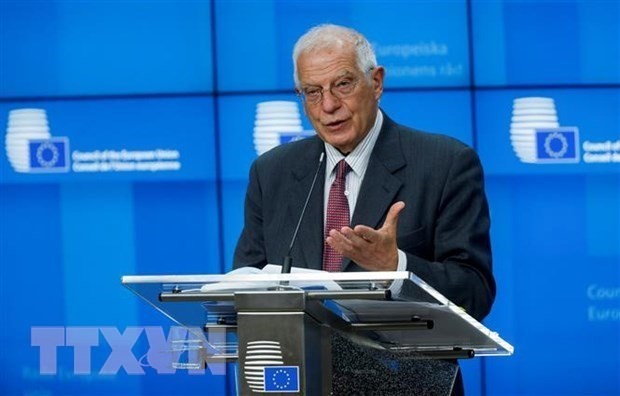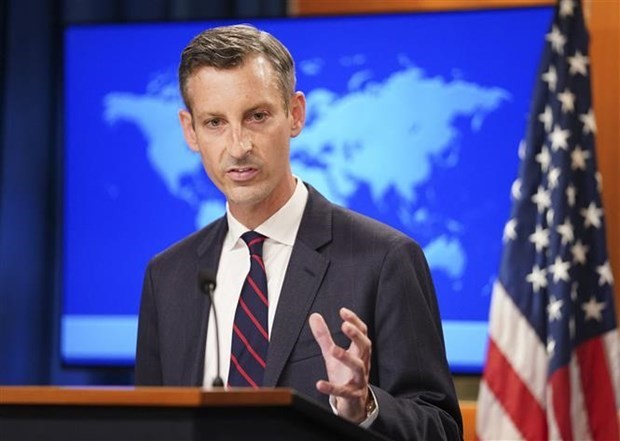(VOVWORLD) -After a year and a half of negotiations (since April 2021), the parties to the 2015 Iran nuclear deal have narrowed their disagreements, broadening the prospect of finally clinching a new version of the deal. But the sticking points that remain will require additional goodwill from the stakeholders.
 High Representative for Foreign Affairs and Security Policy of the European Union (EU) Josep Borrell. Photo: AFP/VNA High Representative for Foreign Affairs and Security Policy of the European Union (EU) Josep Borrell. Photo: AFP/VNA
|
The Iranian government said Wednesday that it has received a response from the US to the EU-drafted proposal to revive the deal, known as the Joint Comprehensive Plan of Action (JCPOA). Iranian Foreign Ministry spokesman Nasser Kanaani said the process of carefully reviewing the US response has begun and Iran will announce its decision after it completes its review.
Major progress
The EU's High Representative for Foreign Affairs and Security Policy Josep Borrell is confident that an agreement is within reach and may be achieved within days. After the EU sent Iran the final text of a draft agreement, Iran proposed some adjustments, which Borrell described as “reasonable”.
The draft agreement and Iran's proposed adjustments were sent to the US, Russia, China, the UK, Germany, and France. The EU representative said the majority of parties have already agreed to Iran's adjustment. Russian Foreign Minister Sergei Lavrov on Monday reiterated Moscow’s agreement with the EU's proposed final text. US State Department spokesman Ned Price said at a briefing that "A deal is closer now than it was two weeks ago, but the outcome of these ongoing discussions remains uncertain as gaps do remain."
Analysts say significant progress has been made, but what adjustments Iran wants has not been revealed.
 US State Department spokesman Ned Price. Photo: AFP/VNA US State Department spokesman Ned Price. Photo: AFP/VNA
|
Trust building
Two days before receiving the US response, the Iranian Foreign Ministry spokesman accused Washington of procrastinating and criticized Europe for not putting pressure on the US. In an August 16 statement, Tehran said “the ball is now in America’s court” and “if the United States shows genuine willingness and the necessary flexibility, an agreement will be reachable in the short term.” Ned Price said Monday that there are still some questions about the adjustments Iran made to the text.
Analysts say mutual trust is the biggest remaining hurdle for the US and Iran to overcome. Given the "extreme danger" of a nuclear war pointed out by UN chief Antonio Guterres, trust between the JCPOA signatories is vital, not only to allow an important foundation for an agreement to be reached, but also make sure the agreement is adhered to and won’t collapse as it did after the US’s unilateral withdrawal in 2018. Reviving the JCPOA could serve as a model for dealing with other security challenges, particularly nuclear threat on a global scale.